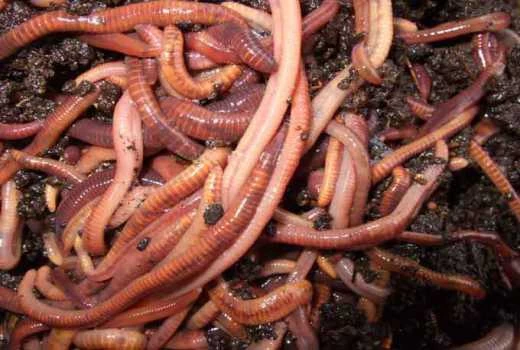Red worm rearing and breeding, also known as vermiculture, is gaining popularity with farmers across Kenya who are cashing in on it.
The worms are a good source of soil nutrients and are used by organic farmers to fasten the decomposition of organic manure used to grow crops.
The worms consume the decaying organic material and then flush it out of their system in what is referred to as ‘castings’ or ‘worm manure.’ This matter is nutrient-rich and is used to fertilize plants and vegetables.
Peter Kanyagia stepped into this venture five years ago after undergoing training at Jomo Kenyatta University. Having previously experienced the adverse effects of conventional fertilizers, Kanyagia was inspired to switch to organic farming.
“I bought five kilograms of red worms at a cost of Sh2500 and set the ball rolling for my new venture.” He said, adding that he mainly practices the breeding of red worms and supplies them to his clients.
According to him, for one to start breeding the red worms for either organic foliar or organic manure, they must first build a bed that is raised from the ground and the poles treated with pesticides to keep off termites and other pests.
How to increase your poultry production for more profits
Peter’s bed measures 3 feet wide, 10 feet long, and 6 feet high. At the base, it’s advisable to use fiber sheets because of their rust-free nature and place them in a sloping manner to allow the collection of the vermi liquid at the collection tunnel placed at the end.
For roofing, normal iron sheets can be used.
“I cut banana stems into smaller pieces and use put them at the base of the bed due to their ability to allow moisture circulation.’’ Added Kanyagia.
He notes that watering of the beds should be done twice or thrice a week, adding that well-managed beds can double the number of red worms within two months.
The worms take about two months to start producing good-quality vermin liquid. Vermicompost takes a little longer, about six months to be harvested, while for the breeders, it is advisable to start scooping the worms after four months.
About 20 litres of foliar can be fetched from each bed in a month, and with a litre retailing at about Sh100, this translates to Sh2000 per bed.
In addition, one can harvest 20 kg of worms. Although the market price of a kilo is Sh2500, Peter sells at Sh1000, earning Sh100,000 from his five beds after every three months.









